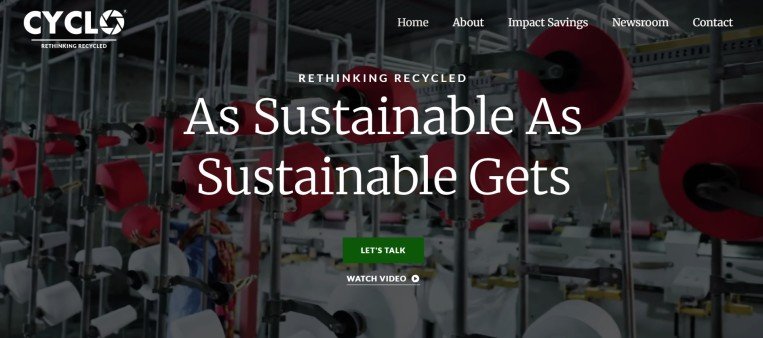Trademark dispute in the field of recycling: Bangladeshi firm clashes with prime sportswear brand
26 March 2025

Credit to Cyclon's official website, Zurich-based On Holding AG manufactures recyclable athletic shoes
A Bangladeshi recycled yarn spinning facility and a globally famous Swiss sportswear company are embroiled in a trademark dispute.
Based in Bhaluka, Bangladesh, Simco Spinning & Textiles Ltd. is a pioneer in the country’s circularity industry. Established in 2011, the company produces recycled yarn supplied to clothing manufacturers in the U.S. and Europe. The yarn carries the trademark Cyclo which was registered in Singapore in 2014. It is registered in more than 20 other countries including the U.S., UK and Japan.
Zurich-based On Holding AG manufactures recyclable athletic shoes under the brand Cyclon, registered in Switzerland in 2021. It was around that year when On, which was established in 2010, launched its recycling initiative. As of 2020, On footwear were being sold in 55 countries including the U.S., the brand’s leading market.

Credit by official website of Cyclo
Due to the similarity of the marks plus the brands’ involvement in the circularity industry, Cyclo and Cyclon have been causing confusion among consumers globally.
For the past two years, representatives of Simco have been trying to get in touch with representatives of the Swiss brand to settle the problem amicably. However, their pleas fell on deaf ears.

Abdur Rahman Junaid I senior associate @ Rahman’s Chambers, Dhak
“In what appears to be yet another David versus Goliath situation in the international IP sector, the trademark dispute between Simco and On AG highlights the uphill battle smaller businesses may face against larger, more established corporate entities worldwide,” said Abdur Rahman Junaid, a senior associate at Rahman’s Chambers in Dhaka. It reflects the disparity of financial and legal resources available to small businesses, even if they do everything by the book. According to Junaid, the complexity of international trademark disputes
often depends on the jurisdictions involved, allocation of resources, manpower and legal expertise.
“Strictly based on the publicly available information in reported news outlets, it appears that our David has had the first mover advantage in this case, allegedly to have been launched in 2014 as opposed to 2021 for the latter, with the brand in question to have been trademarked and registered in over 20 countries,” Junaid pointed out.
Junaid also remarked that mutual negotiation and mediation additionally play a vital role in such disputes. Both alleviate and/or minimize financial strain and preserve business relationships between parties.
“Furthermore, in this digital era, public perception and virality element also have a part to play, as issues related to ‘goodwill’ and intellectual property rights go hand in hand. Bigger conglomerates would rarely risk hurting their public image on a global scale; as such, public awareness with support from relevant ministry or institutions may also serve as a deterrent of sorts or a bargaining chip for resolving disputes,” he added.
- Espie Angelica A. de Leon






